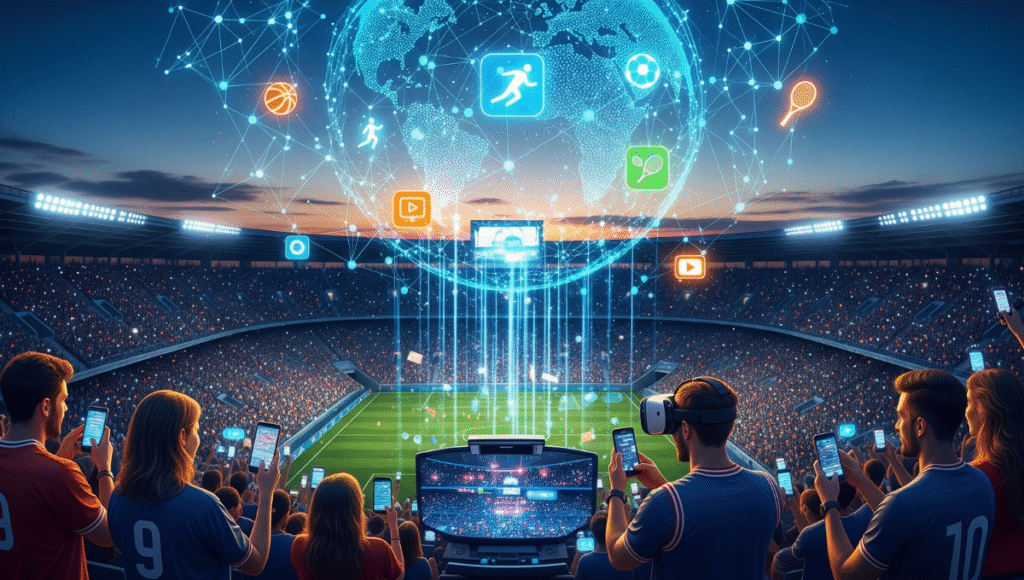Sports have long been a cornerstone of society, blending athletic talent, strategic thinking, and a sense of shared connection.Beyond the action on the field, they provide entertainment, economic opportunities, and social interaction for millions of fans around the world. In recent years, advances in technology and media have changed the way people experience sports, creating more interactive and immersive ways to watch, follow, and even participate in competitions.
The Growth of Professional Sports
Professional sports have become a global phenomenon, attracting viewers, sponsors, and media attention from every corner of the world. Key developments include:
- Global leagues: Competitions like the NBA, Premier League, NFL, and UEFA Champions League reach international audiences, generating billions in revenue.
- Major tournaments: Events such as the Olympics, FIFA World Cup, and Grand Slam tennis tournaments bring together athletes from different countries, combining competition with entertainment.
- Star athletes: Icons like LeBron James, Lionel Messi, and Serena Williams influence fans beyond sports, becoming cultural figures and inspiring new generations.
- Modern stadiums: Advanced facilities enhance live experiences, featuring large screens, premium seating, and interactive fan zones.
These developments have turned sports into a major source of entertainment, attracting audiences of all ages.
How Fans Engage with Sports
The way fans connect with sports now goes well beyond simply showing up at the stadium. Today, people follow and interact with sports in several ways:
- Live attendance: Watching games in stadiums offers unmatched excitement and community energy.
- Broadcast and streaming: Television and online platforms allow fans to watch matches from anywhere in real time.
- Social media: Fans interact with players, share highlights, and discuss matches on platforms like Twitter, Instagram, and TikTok.
- Fantasy sports: Managing virtual teams based on real players adds a strategic element to watching games.
These engagement methods create dynamic relationships between fans and sports, enhancing overall enjoyment.
The Role of Technology
Technology has transformed both the performance of athletes and the way fans experience sports:
- Performance analytics: Teams use data to improve strategies, while fans gain insight into player performance.
- Instant replay and VAR: Systems in soccer, tennis, and other sports ensure fair decisions and accurate outcomes.
- Wearables and monitoring: Devices track health, endurance, and movement, helping athletes train safely and efficiently.
- Interactive apps: Fans access live statistics, updates, and exclusive content directly from their devices.
These innovations make sports more competitive, accurate, and engaging for audiences worldwide.
Economic Impact
The sports industry drives revenue across multiple sectors, highlighting its significance beyond the field:
- Ticket sales and merchandise: Apparel, memorabilia, and sporting gear generate significant income.
- Sponsorships and advertising: Brands partner with athletes, leagues, and events to reach global audiences.
- Media rights: Broadcasting deals provide large revenues for networks and organizers.
- Sports betting: Wagering on games has become increasingly popular, with fans exploring options on platforms such as https://first.com/sports-betting, allowing them to engage with matches in new ways.
These revenue streams illustrate how sports influence business, entertainment, and fan interaction.
Challenges in Modern Sports
Despite growth and innovation, sports face challenges that affect players, organizations, and fans:
- Player health: High-intensity schedules can lead to injuries and fatigue.
- Competition for attention: Other entertainment options, including streaming and gaming, compete with sports for audiences.
- Regulatory issues: Rules around doping, gambling, and league management continue to evolve.
- Accessibility: Costs for tickets or subscriptions can limit participation for some fans.
Addressing these challenges is important to maintain fair competition, fan loyalty, and sustainable growth.
The Future of Sports
Looking ahead, sports are likely to continue evolving with technology and fan engagement:
- Virtual and augmented reality may offer immersive viewing experiences.
- Global tournaments will reach emerging markets, attracting diverse audiences.
- Interactive platforms provide real-time stats, predictions, and content directly to fans.
- New event formats may combine multiple sports or create innovative fan experiences.
Sports continue to influence culture, provide entertainment, and offer economic opportunities, reflecting both the skill of athletes and the passion of fans around the world.

